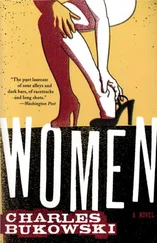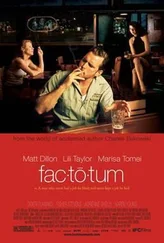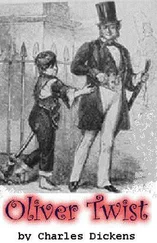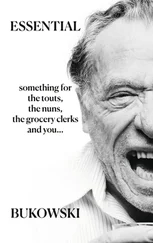From the television on the other side of the room the newscaster promised audiences that in two minutes they’d hear all about the trendy restaurant and the mystery of where in the world they could be getting fresh crabs. Hear what the Department of Health and the ASPCA have to say about this shocking obscenity. Oliver clapped and hooted. Alice said nothing, but her eye contact conveyed entertainment, delight.
Then the call. She’d been expecting it. But for once Winnie was early, confirming she’d brought Doe, the two of them were downstairs, waiting. Only why was Oliver tensing? If things were what Alice wanted, his energy would have changed in a different manner, he’d have been devoted to preparing his wife to go to the lobby. So why was Oliver listening, agreeing, saying he understood, he’d be home as soon as he could? Alice gripped his palm, demanded, “What?”
Placing the room’s phone back into its cradle, Oliver laid his free hand on the comforter, overturning an unimpressive run of cards. The baby was fine. Everything was okay. “I know you said we could rely on her. I know Winn’s a nice friend and wants to help and all.” Oliver assured Alice, as she removed herself from his side, “It’s no biggie. Some scheduling thing with her dance troupe. The easiest thing is for me to go home and take over child duty.”
Alice told him it was fine. There would be other adjustments as well. They’d deal with each as it arrived.
“We’ll be here first thing in the morning,” he said. “I promise.”
She released his hand; Oliver looked for his shoes, began the process of gathering his wallet, his sweater. Alice thought he looked anxious to leave, and this struck a low chord. She said maybe she’d go and try a few laps. It made sense to move while she could. “Better than just sitting alone being disappointed.”
Oliver returned to his wife and threw off the little paper rectangle. They held one another along the sides of their faces, Alice ran her hands down his jaw, felt his gristle. “I love your face,” she told him, and he violated hospital policy, pressing his lips onto hers.
“Your first night with her alone,” Alice said.
“If you need a nurse for those laps—”
“You should git.”
He tore the strings holding together the back of his smock, rolled off his gloves, slam-dunking the garments in the trash bin near the door.
Through the windows on the other side of the room, the night was weirdly vivid, the snow still falling at a crazy pace, the flakes distinct, bright enough to glow. In the opposite building, most of the windows were dark. One window on the right side was lit, body outlines half-shredded by flimsy blinds, two men sitting like potato sacks, facing one another at a desk, one man rubbing his eyes, the other drinking coffee.
Alice could hear Mrs. Woo on the other side of the partition, breathing through that pipe, rhythmic bursts, long in, wheeze out. It occurred to her that she hadn’t heard the television for a while, and for this she was thankful. She sat upright, shifted her legs to the side of the bed where Oliver had been, its safety bars still blessedly down. Easy to slip into her bunny slippers; Alice, however, searched out her knee-high boots, their leather so deliciously soft it did not stand upright. The million and eighth thing to be thankful for: that her feet had not swollen back up. Million and nine: she could still fit into the boots, Alice buckled, zipped, was surprised to feel the lack of a head rush as she rose, her balance natural, strong. She knotted her robe, reached for the wall, yanked with both hands, enjoying the exertion necessary to unplug her battery pack. How good it would feel to go on a looting, riotous rampage. Then she thought about the poor souls who’d have to clean up, and who’d have to pay for everything, and what about everyone who suffered because of the damage you caused?
Wrapping the thick cords once around her neck meant she wouldn’t trip over them. Alice took her time, dragging the battery pack and its tree of fluids alongside her, the IV pole jiggling, which was fine, except being on alert, making sure that all was safe, was even more taxing. Where visitors wore the mask and gloves and bib so they wouldn’t transmit anything, Alice wore them so she wouldn’t pick anything up.
In New Hampshire, after her numbers had started to climb, and the doctors had given her the okay, walking laps around the ward with Oliver had been her nightly chance to get out of that godforsaken room without some sort of test or probe, and she’d looked forward to that nightly hour as if it were her wedding. Barely managed ten laps that first go-around. By the time they’d released her, she was up to fifty, almost half a mile, thrusting her hands above her head for a five-lap set, jetting them out to the sides like an airplane and making circles for another five (the ward physical therapist had told Alice the exercises would prevent her arms from atrophying). Next to her, Oliver did the same, or held on to the IV tower so it didn’t wobble; he always counted out loud when they passed the nurses’ station and completed a lap, tracking Alice’s reps and pace. Every so often they broke into the chorus of that old Olivia Newton-John song. Nurses stared like these two aerobicizers were crazy, or made charmed cooing sounds, or else looked right through the two, just another day in paradise.
Using her body as leverage so the door stayed open, she rolled the battery tree out of her hospital room, and was surprised to find herself facing a different direction than when she left her New Hampshire room, the configuring of sink and supply nook different, too, more cramped, the shelves shorter, with supplies piled atop one another. The overhead lights were brighter, too, which seemed improbable, based on Alice’s memory of that place, only here was the evidence, glaring down, reflecting even more harshly off the tiles. The hallway seemed to run forever, like one of those visual effects to convey eternity — an Escher effect. Alice tried to remember specifics, his various lithographs. She thought of a hallway from some Kubrick movie, but couldn’t remember which.
Centered down in the distance on the other end, the outline of a person and an IV pole formed a small squiggle.
Expectations work against you, she remembered Eisenstatt saying. You think you know what’s coming. It bothered Alice that Dr. Know-It-All was indeed correct. She wouldn’t have believed that she’d gotten weaker since coming home, but walking fifty laps in this place seemed as possible as being named the queen of Spain. Her feet did not leave the floor; she shuffled forward, her old person’s shuffle, in the direction of what looked like a barricade, a bunch of overflowing industrial clothing bins, gathered on the right side of the hall — the near door’s sign read LINEN ROOM, and she made sure to give it a wide berth, navigating the rolling pole, a wide arc around the mess. Soon she was passing a stray metal stacking table, its shelves overflowing with uncovered trays of sloppy, half-eaten lunches and untouched dinners, Saran Wrap still clinging to the tops of their square trays. A bit farther down, beyond the door for the social services worker, sat a lab rack filled with blood vials. The hallway’s near wall was lined with flyers and pamphlets: guides to various radiation treatments, how to deal with this or that chemotherapy, support group flyers, checklists for talking to your children about your disease.
Thank Goddess there was something else to look at. That little squiggle down the hall had taken the form of a person. A fully dressed man: loose blue-and-black lumberjack shirt, black jeans worn to dullness, the clothes hanging off his body in a manner she recognized all too well from Oliver and his friends. Would’ve been unassuming if he hadn’t been pushing an IV stand. Alice immediately classified him: Phylum: grad student who lives down the hallway; Class: odd and interesting, with hints of intensity.
Читать дальше











